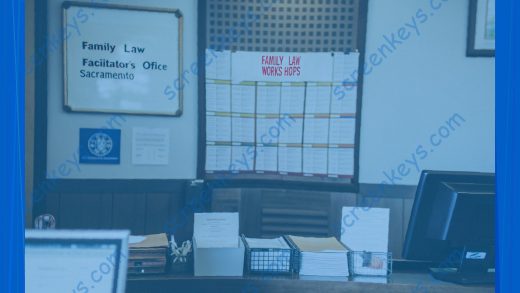What is Legal Aid?
As with any criminal legal issue, understanding the legal process is imperative to your case, and this extends to legal aid as well. Legal aid is a non-profit organization that provides free legal assistance to those who qualify. Legal aid groups operate in 830 of the 1,885 counties in the United States, and many states have multiple, lower-tier chapters of legal aid.
Legal aid serves to help clients navigate legal issues – civil or criminal – when they cannot afford legal services. Eligibility for legal aid is based on income , household size and the type of legal issue. Most often, eligibility is restricted to households that earn less than 125% of the U.S. federal poverty line, though this can vary by state.
Legal aid groups are funded primarily by the federal government, but also by private and state funding. There are also non-profit, or private, legal aid organizations that are funded primarily by board members and private donors.

Portsmouth Legal Aid Organizations
There are a couple of primary legal aid organizations that operate in and around Portsmouth, Ohio.
The Legal Aid Society of Columbus is a non-profit organization that provides free legal services for low-income clients in a variety of matters. The organization itself does not provide legal assistance but instead focuses on coordinating a network of attorneys, volunteers, and community legal clinics to serve the needs of those communities. The organization offers access to assistance for disability law, elder law, housing, consumer rights, divorce and child custody, estate planning, civil and general law, immigration law, tax law, and access to justice.
Volunteer Attorneys for Legal Aid is a nonprofit organization that assists low-income people in Scioto County with civil legal matters. The organization offers several ways for legal aid, including in-house interviews, phone referrals, or a specialized legal clinic for homeless families. Primary areas of focus for the Volunteer Attorneys for Legal Aid include family law, housing law, bankruptcy law, tax law, consumer law, expungement of criminal records, public accommodation issues, education, and wills.
Applying for Legal Aid
How to Apply for Legal Aid in Portsmouth, Ohio
Applying for legal aid in Portsmouth, Ohio, requires you to first determine if you are eligible based on your personal financial situation and the type of service you require. Legal aid is typically offered to individuals who cannot afford to pay for an attorney in either civil or criminal legal matters under the prevailing poverty guidelines. For 2022, the federal poverty level for a single person household is $13,590 annually, and for a family size of four it is $27,750.
If you believe you qualify under federal poverty guidelines, your next step is to contact one of the agencies in your county that offers legal aid. For Portsmouth residents, these include the Legal Aid Society of Greater Cincinnati and Ohio’s Legal Aid telephone service.
Legal Aid of Greater Cincinnati serves Portsmouth, as well as Adams, Brown, Clermont, Hamilton, Highland, Jackson, Lawrence, Pike, Ross and Scioto counties in Ohio and Boone, Bracken, Campbell, Carroll, Gallatin, Grant, Grant, Kenton, Lewis, Mason, Pendleton and Webster counties in Kentucky. Through its various programs, Legal Aid provides services in the areas of consumer, education, employment, family and domestic relations, health, housing, individual rights and public benefits.
Nationwide Telephone Service for Legal Aid (TLSLA) provides a single point of access to legal aid and legal information to residents of Ohio. Applicants from eligible areas are screened and directed to the appropriate legal aid provider. The SOSLA operates Monday through Friday from 8 a.m. to 6 p.m.
It is also important to note that legal aid service providers offer their services free of charge, so be wary of organizations that charge fees for an initial consultation.
Types of Legal Problems Covered by Legal Aid
Legal aid services are designed to assist low-income individuals in various legal matters, and the range of cases they handle is as diverse as the challenges faced by their clients. For Portsmouth, Ohio residents in need of legal assistance, they can help with a multitude of legal issues.
One of the most common services provided by legal aid offices is eviction defense. Many low-income families find themselves at risk of losing their homes due to job loss or unexpected medical expenses. Legal aid attorneys can help defend tenants against unlawful evictions and negotiate with landlords to secure either a more affordable rental agreement or an extended wait period before eviction.
Domestic violence is another area where legal aid services can provide vital support. Victims of domestic violence in Portsmouth, Ohio can receive assistance in obtaining protection orders, navigate the legal steps required for divorce , and even secure temporary housing or financial relief. They also offer legal aid for child custody cases when domestic violence is a factor in the family situation.
Legal aid offices also provide support in bankruptcy cases. When faced with overwhelming debt, filing for bankruptcy can be an option of last resort. Legal aid services can guide individuals through the process of filing, offer information on the different types of bankruptcy – such as Chapter 7 and Chapter 13 – and help them understand the potential long-term impacts on their financial situations.
Other services that legal aid may provide include senior citizen advocacy, which covers a range of issues from financial fraud to healthcare decisions, consumer protection against predatory lending, and family law matters. Regardless of the problem, legal aid services are an essential part of the community, offering necessary legal assistance to those who need it most.
Legal Aid Impact and Success Stories
In Portsmouth, Ohio, the impact of legal aid services has been felt in numerous communities and among countless individuals. Clients have reported life-altering changes as a result of the support they have received.
Take the story of Ashley, a single mother of two who faced wrongful eviction from her home. She had previously sold her car to make ends meet and used public transportation. When she learned about the legal aid services available to her through a community organization, she reached out for assistance. Legal aid attorneys helped her stay in her home, assisting in the negotiation with her landlord and, when that didn’t work, successfully presenting her case in court. Not only did Ashley retain her residence, but she was able to keep her job, now able to get there by bus. If it hadn’t been for the intervention of legal aid, Ashley and her children would have been without a home.
Portsmouth’s legal aid organizations have a visible impact in the community, such as their participation in the annual charity Chili Cook-Off hosted by local law firms. Each year, the event raises funds for the local legal aid society. The event is well-attended by members of the community and attorneys, many of whom have provided pro bono services over the past year.
Attorneys in Portsmouth, Ohio have devoted their time to represent 80 clients in foreclosure cases since 2008. Seventeen of those clients were senior citizens. Pro bono clients often include seniors, families with children facing special needs or caring for an elderly parent, and those with disabilities. The success stories continue as the community and the legal services organization work together to ensure that the message of "You are not alone" rings true for every resident in the region.
Issues Facing Legal Aid
Despite the invaluable services that Legal Aid provides, there are significant challenges to be faced in the near future. The biggest challenge is funding shortages. With increasing demand and declining funding sources, Legal Aid services may be forced to make difficult decisions about where to allocate limited resources in the coming years . Another issue is providing sufficient training for volunteer attorneys. Finally, public knowledge of these vital services is lacking on many levels; the public must be made aware of the legal resources available to them.



